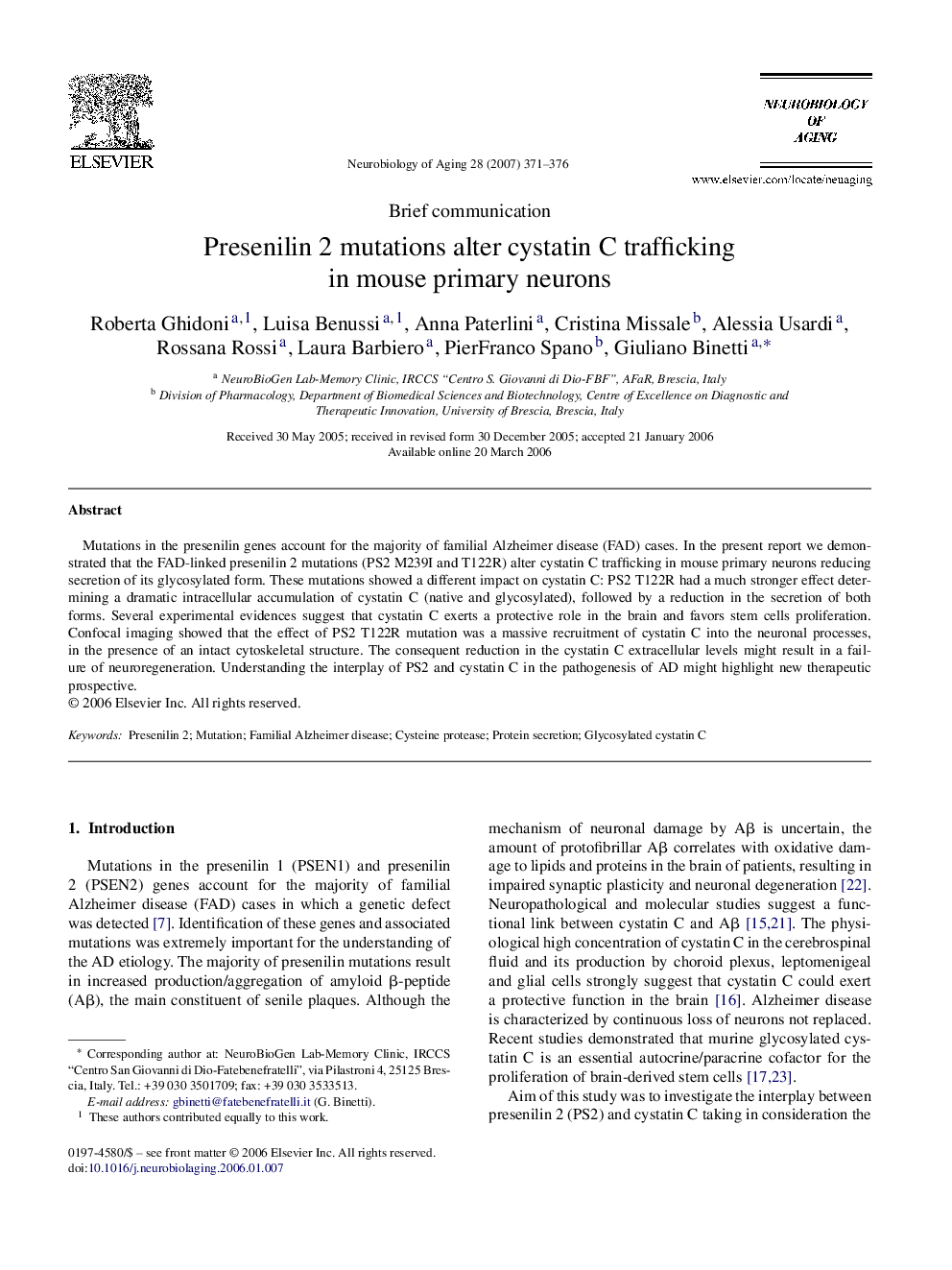| Article ID | Journal | Published Year | Pages | File Type |
|---|---|---|---|---|
| 331291 | Neurobiology of Aging | 2007 | 6 Pages |
Mutations in the presenilin genes account for the majority of familial Alzheimer disease (FAD) cases. In the present report we demonstrated that the FAD-linked presenilin 2 mutations (PS2 M239I and T122R) alter cystatin C trafficking in mouse primary neurons reducing secretion of its glycosylated form. These mutations showed a different impact on cystatin C: PS2 T122R had a much stronger effect determining a dramatic intracellular accumulation of cystatin C (native and glycosylated), followed by a reduction in the secretion of both forms. Several experimental evidences suggest that cystatin C exerts a protective role in the brain and favors stem cells proliferation. Confocal imaging showed that the effect of PS2 T122R mutation was a massive recruitment of cystatin C into the neuronal processes, in the presence of an intact cytoskeletal structure. The consequent reduction in the cystatin C extracellular levels might result in a failure of neuroregeneration. Understanding the interplay of PS2 and cystatin C in the pathogenesis of AD might highlight new therapeutic prospective.
